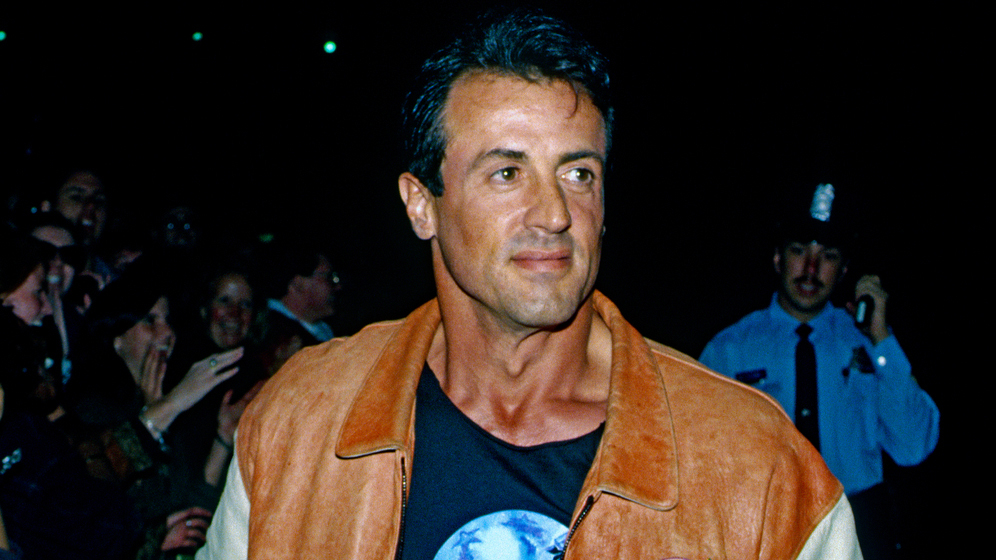With a staggering personal fortune estimated at $400 million, Sylvester Stallone is far more than a celebrated movie star; he is a formidable business mogul. His career offers a definitive blueprint for transforming an on-screen persona into a real-world story of financial victory. This guide deconstructs how Stallone architected this empire, answering the central question: how did a struggling actor from Hell's Kitchen leverage a single script about a Philadelphia boxer into a multi-generational financial dynasty? The answer reveals a masterclass for any CEO or entrepreneur, a success story built on three core pillars: the foresight to own his intellectual property, the strategic diversification of his assets, and the masterful cultivation of a personal brand rooted in resilience.
Founder Bio Box: Sylvester Stallone
- Name: Sylvester Stallone
- Business/Title: Actor, Producer, Entrepreneur, Founder of Balboa Productions
- Net Worth: Approximately $400 Million (Source: Forbes/Celebrity Net Worth, 2024)
- Known For: Rocky, Rambo, The Expendables
- Key Business Move: Negotiating to retain partial ownership and rights to the Rocky franchise.
- Legacy: The ultimate underdog-turned-mogul story, a blueprint for brand longevity.
The Knockout Bet: How Securing the 'Rocky' Franchise Built the Foundation
Sylvester Stallone's career's single most important business decision was not a lucky punch but a calculated, strategic move that defined his financial future. This decision established the bedrock of his empire and demonstrated a profound understanding of long-term value over short-term gain. It's a lesson that remains incredibly relevant in today's media landscape, where battles over IP and ownership are constant, as seen in major deals like Skydance's recent $8 billion acquisition of Paramount Global.
From Struggling Artist to Savvy Negotiator
Before the fame and fortune, Stallone's early life was marked by financial struggles that fueled his relentless ambition. He famously wrote the script for Rocky in just three days, an accomplishment born of desperation and an unwavering belief in his story. When producers Irwin Winkler and Robert Chartoff offered to buy the script, Stallone held firm on a non-negotiable term: he had to star as the lead. He refused a significantly larger payout for the script alone, instead accepting a much lower salary plus a percentage of the film's profits and, most critically, merchandising rights. This decision was the cornerstone of his financial success, proving his core principle: have absolute faith in the product you create and demand ownership.
The Compounding Power of a Pop Culture Icon
The initial Rocky deal was a stroke of financial genius because it wasn't about a single film; it created a lifelong annuity that continues to pay dividends decades later. The franchise's impact on Stallone's wealth is a case study in the power of owning intellectual property, a strategy that has influenced a new generation of celebrity entrepreneurs. This financial architecture can be broken down into several key streams:
- Producer Profits & Box Office Points: Stallone's stake ensured he earned as an actor and a key stakeholder in every sequel. This influence extended to his role as a producer on the critically and commercially successful Creed spin-off series, revitalizing the franchise for a new generation and substantially adding to his bottom line.
- Merchandising & Licensing: For nearly five decades, the Rocky name, image, and likeness have generated vast revenue from a wide array of merchandise, including video games, apparel, and countless other branded products. This continuous stream of income is a direct result of his initial negotiation.
- IP Control: Owning a piece of the intellectual property gave Stallone significant creative input and leverage over the franchise's direction. This level of control is a lesson that another celebrity-led venture, Ryan Reynolds' Maximum Effort, has perfected, turning creative control into a powerful business asset. It has produced viral ads for major brands like Peloton and Astronomer AI. Stallone pioneered this model of artist-as-owner.
- Enduring Brand Value: The franchise permanently fused Stallone's public identity with themes of perseverance, resilience, and the underdog spirit. This powerful brand association has made him iconic, giving him a level of cultural staying power that few actors ever achieve.
Diversifying the Portfolio: Building an Empire Beyond the Boxing Ring
Applying the lessons learned from his initial success with Rocky, Stallone strategically diversified his interests to build a resilient financial portfolio, insulating himself from Hollywood's notorious volatility. He understood that true wealth is created, protected, and grown through intelligent allocation. This mindset shifted him from being a movie star who invests to an investor who also happens to be a movie star, a business-first approach that mirrors the strategies of other successful entrepreneurs in the entertainment space.
The Stallone Production Machine
A pivotal moment in Stallone's entrepreneurial journey was launching his own production company, Balboa Productions. This move directly applied the Rocky lesson: own what you create. The most potent case study is The Expendables franchise. Stallone didn't just star in the action series; he co-wrote and directed the first film, creating a new, valuable piece of IP that he controlled. By assembling a cast of iconic action stars, he engineered a blockbuster franchise outside the traditional studio system, reducing his reliance on others and generating a fresh revenue stream from a globally recognized brand he built from the ground up.
A Mogul's Approach to Tangible Assets
Beyond the film industry, Stallone has demonstrated a sophisticated approach to wealth preservation through savvy investments in high-value tangible assets. These are not the mere hobbies of a rich celebrity but calculated moves in strategic asset allocation. He has a long and successful history of buying and selling multi-million dollar properties in prime real estate markets like Beverly Hills and Palm Beach, capitalizing on market trends. Furthermore, Stallone has cultivated a reputation as a serious fine art collector, with a discerning eye for works by renowned artists like Jean-Michel Basquiat and William-Adolphe Bouguereau. This is both a passion investment and a powerful, non-correlated asset class that adds cultural sophistication to his brand while providing a hedge against market fluctuations.
Stallone's Ventures: A Strategic Analysis
The different pillars of Stallone's empire work in concert, each serving a distinct strategic purpose. From the recurring revenue of his core film franchises to the wealth-preserving nature of his tangible assets, his portfolio is a well-structured system designed for longevity. This diversified approach is a model for any high-net-worth individual looking to build and protect a lasting legacy.
| Venture Category | Primary Goal | Key Example | Strategic Value for the Empire |
|---|---|---|---|
| Core Film Franchises | Intellectual Property & Longevity | The Rocky & Creed Series | The foundational asset; generates recurring revenue. |
| Owned Productions | Creative Control & New IP | The Expendables / Balboa Productions | Reduces reliance on outside studios; creates new assets. |
| Luxury Real Estate | Wealth Preservation & Growth | Beverly Hills & Palm Beach Estates | Tangible, high-value assets that hedge against markets. |
| Fine Art Collection | Passion Investment & Diversification | Works by Basquiat, Bouguereau | Alternative asset class with cultural and financial upside. |
Managing the Mogul: The Complexities of Wealth, Image, and Liability
Building a $400 million empire is one challenge; protecting it is another entirely. Wealth, image, and liability are deeply intertwined for a globally recognized figure like Stallone, requiring constant and careful management. This is especially true when a public figure's brand is closely connected to a specific location, bringing immense benefits and unique risks. Like George Foreman's billion-dollar grill, Stallone's brand is inseparable from a city.
The Philadelphia Story: An Enduring Brand Identity
Sylvester Stallone has masterfully maintained his connection to Philadelphia, a city whose no-quit spirit he has come to personify. The Rocky Steps, famously located at the Philadelphia Museum of Art, are more than just a popular tourist destination; they function as a permanent, free marketing installation for the Stallone brand. Every day, tourists and locals alike run up those steps, reinforcing the inspirational narrative of his most famous character and, by extension, his life story. This organic, daily reinforcement is a priceless asset that keeps his legacy culturally relevant and his brand identity strong.
Navigating Personal Liabilities in Your Hometown
The same visibility that fuels his brand also creates inherent risks. High-net-worth individuals are prime targets for legal and financial challenges, and these risks are magnified in a place where they are as well-known as Stallone is in Philadelphia. A simple, everyday incident can quickly escalate into a major public lawsuit with significant financial repercussions. Consider a common but high-stakes event like a car accident. For a public figure, this is not just a personal matter; it's a potential threat to their entire empire.
In a city like Philadelphia, where the financial and human costs of traffic incidents are alarmingly high—with serious accidents leading to substantial hospital expenses and a high number of traffic-related fatalities in the state—the stakes are exceptionally high. Securing immediate, specialized legal expertise is crucial for any public figure navigating the aftermath of such an event. Should an unfortunate event occur, obtaining counsel from an experienced auto accident lawyer Philadelphia is not just a recommendation; it's a critical step in protecting one's personal and financial empire from unforeseen threats.
The Final Round: A Blueprint for a Lasting Empire
Sylvester Stallone's journey from Rocky Balboa to a business mogul is not a movie script but a definitive business playbook for the modern era. His extraordinary success rests on the foundational decision to bet on himself by retaining ownership of his work, the wisdom to diversify his wealth far beyond his initial success, and the discipline to meticulously manage his iconic brand and its associated risks. He understood early on that a career in Hollywood has a shelf life, but a well-managed portfolio of assets does not.
Ultimately, Stallone's legacy proves that true, lasting wealth is built by creating a great product and owning the story surrounding it. He didn't just play the underdog who won against all odds; he became the architect of his own victory, carefully constructing a financial fortress designed to last for generations. For leaders and entrepreneurs everywhere, his story offers an enduring lesson in the power of vision, the importance of ownership, and the relentless spirit of resilience.









